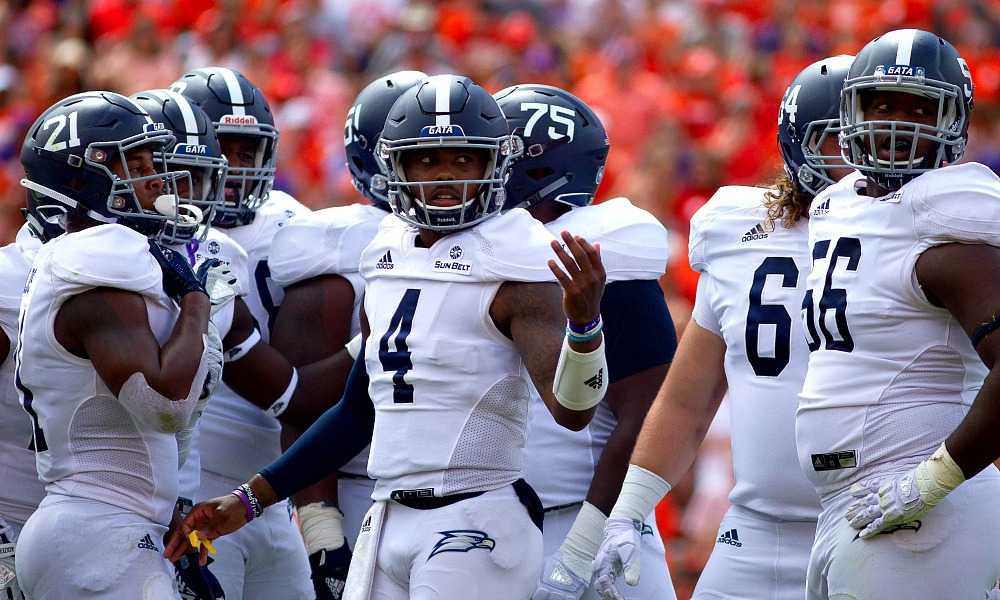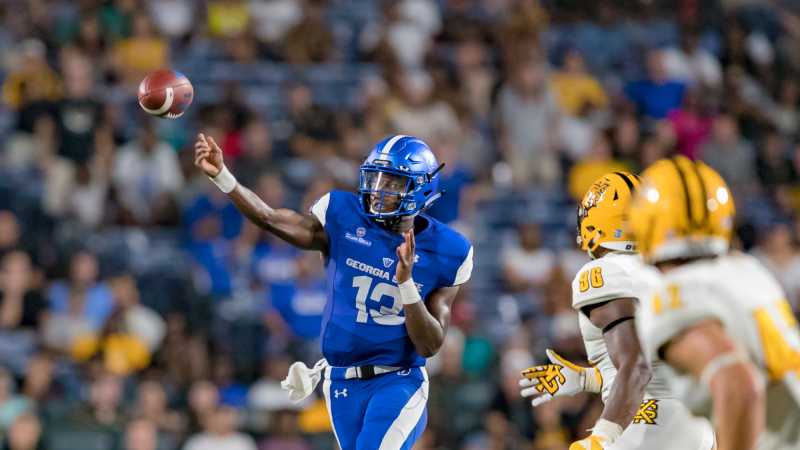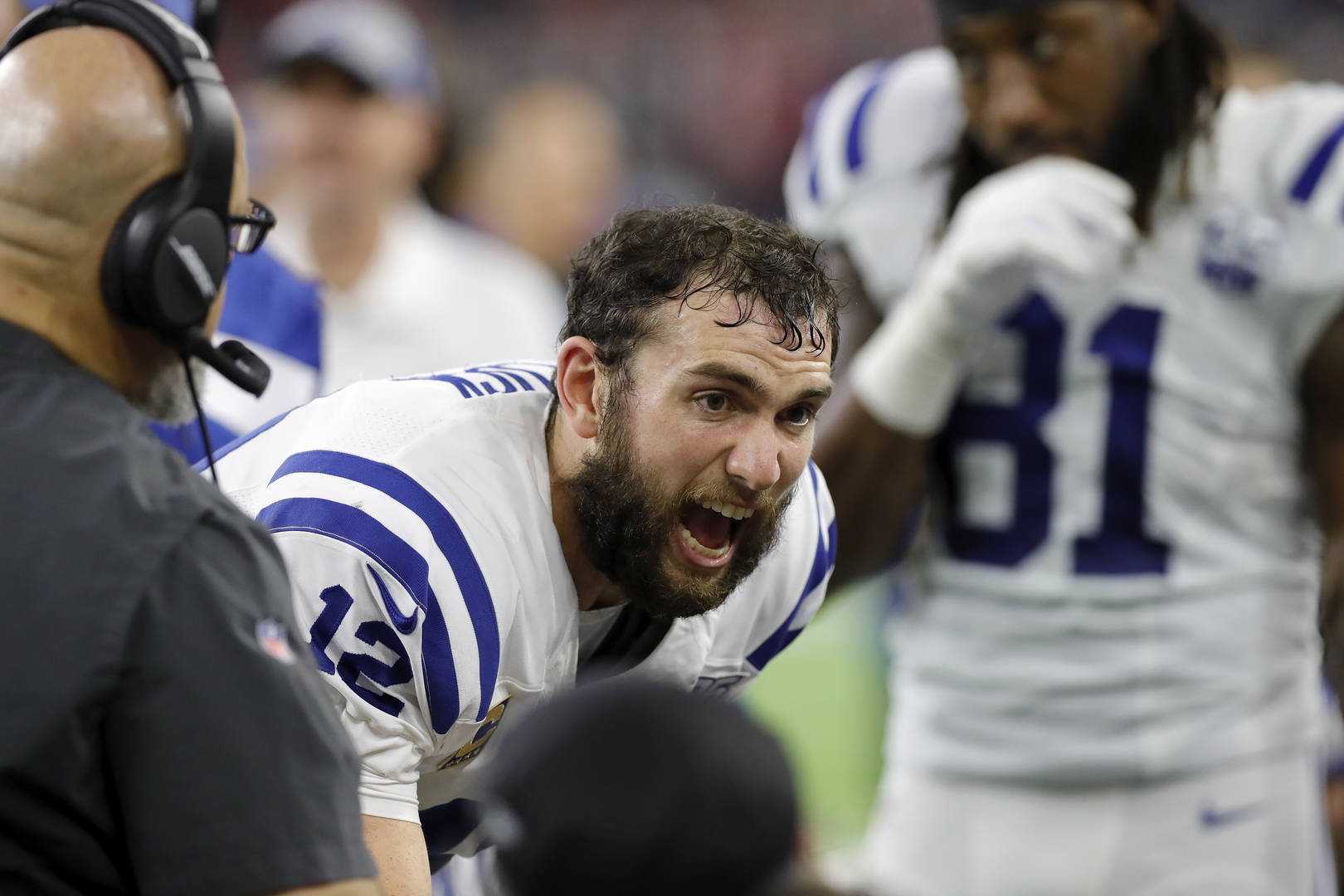Modern Day Hate is the title given to the rivalry that pits the Georgia Southern Eagles against the Georgia State Panthers. A rivalry game that has been played on the basketball court since 1972. Despite both teams spending time in FCS, the two never faced off on the football field. Georgia State jumped up to the Sun Belt in 2012. Two years later, Georgia Southern joined their rivals in the Sun Belt. We got our first meeting between the two teams on the football field in 2014. In the first five meetings, the Panthers hold a 3-2 advantage. As we begin 2019, the stage is set for a new chapter in the Modern Day Hate rivalry. The countdown to November 30th is on with a preview of both the Eagles and Panthers.
Georgia Southern:

The Georgia Southern Eagles began their football career in 1924. The Eagles play in northeast Georgia in a city called Statesboro. Georgia Southern played football, until 1941, when the university suspended football actions due to World War II. The Eagles would not resume football play until 1982. From that point, Georgia Southern found success at the FCS level. Until their move in 2014, the Eagles won six FCS national championships. Their final season in FCS also featured an upset win, on the road, against SEC foe Florida. Georgia Southern will start their 6th season at the FBS level playing in the Sun Belt Conference. The Eagles are coming off a 10 win season last year. The 2018 season saw the Eagles triumph in the Camellia Bowl over Eastern Michigan on a last-second field goal. The 10 wins registered is the highest win total since Georgia Southern joined the Sun Belt. Last season brings in loads of confidence to 2019.
Chad Lunsford enters his 2nd full year as head coach. He took over as the interim in 2017 when the Eagles were 0-6. Lunsford posted a 2-4 record in the final six games and the interim tag was dropped for 2018. Lunsford quickly turned things around in Statesboro winning those 10 games we mentioned earlier. Georgia Southern returns 14 total starters for the 2019 season. Seven guys return on offense including quarterback Shai Werts. Werts is your standard dual-threat quarterback and did not throw an interception last year. Joining Werts will be running back Wesley Kennedy and wide receivers Darion Anderson and Colby Ransom. The Eagles defense returns two defensive lineman, three linebackers, and two cornerbacks. This defense improved dramatically last year. With seven returning starters, Georgia Southern hopes to put together one of the most dominating defenses in the Sun Belt.
2019 yields a tougher schedule for the Eagles with two games in the first three weeks against power five opponents. Georgia Southern opens with LSU and then travels to Minnesota in week 3. After a bye week, the Eagles open Sun Belt play against Louisiana and South Alabama. The final seven weeks see home games against Coastal Carolina, New Mexico State, ULM, and rival Georgia State. Georgia Southern travels to Appalachian State, Troy, and Arkansas State.
More than likely, the Eagles will begin the season 1-2. The next two games are winnable to bring the record to 3-2. In those final seven games, I give Georgia Southern all their home games. This gives them seven wins in total. Throw in splitting against Appalachian State and Troy bringing the record to 8-3. The final road game is against Arkansas State.
The Eagles defeated the Red Wolves last year. I will say the Eagles win this game to finish 9-3. This gives them a chance to win their bowl game for their 10th win of the season. Worst case, the Eagles lose both games to Appalachian State and Troy, while also dropping the game to Arkansas State. In this scenario, Georgia Southern finishes 6-0 at home with just one win on the road. The key to a successful 2019 for the Eagles will be how well do they play on the road. The entire Georgia Southern team looks to build off the success that Lunsford and company established last year. The Eagles are a threat to win double-digit games and compete for a Sun Belt Conference Championship. Modern Day hate.
Georgia State:

The year was 2010 and the city of Atlanta saw a new team take to the football field. The Georgia State Panthers’ inaugural season began in 2010 as an FCS independent. The Panthers first season finished with a 6-5 record. The next four years were filled with turmoil as Georgia State struggled to grow their program. They wrapped up their stint in FCS with a 1-11 record in 2012.
Their first two years in the Sun Belt did not yield much differently as the Panthers finished a combined 1-23. Georgia State celebrated in 2015 with a win over rival Georgia Southern and their first appearance in a bowl game. The Panthers lost the Cure Bowl to San Jose State. Two years later saw Georgia State return to the Cure Bowl where they triumphed over Western Kentucky. The Panthers entered 2018 with high hopes and expectations that this could be a breakout year.
The results did not meet expectations and Georgia State finished the season 2-10. The Panthers also lost to Georgia Southern for the first time in three meetings. 2019 marks the 10 year anniversary of Georgia State football beginning. In a city that is dominated by the Atlanta Falcons and Georgia Tech, the Panthers strive to one day hoist a Sun Belt Conference Championship trophy.
Sean Elliott starts his 3rd year as head coach for the Panthers. Elliott comes to Atlanta after an interim stint with South Carolina. Elliott hopes to channel the results of 2017 this year. Georgia State also returns 14 total starters. The Panthers return quarterback Dan Ellington, as well as wide receivers Cornelius McCoy and Devin Gentry.
Though the offense averaged four more points last year, the defense did not help them out. The Panthers defense went from averaging 25 points per game to 37 points per game. The Georgia State defense returns leading tacklers Ed Curney and Remy Lazarus. In addition to these guys, the Panthers also add two returning defensive linemen, one returning linebacker, and two returning defensive backs. This defense will be motivated to show the Sun Belt how much they have improved in 2019. With the pendulum shifting to their rivals, Georgia State hopes to steer the momentum back to Atlanta.
The 2019 schedule gives Georgia State a brutal stretch to start. The Panthers have three road games within the first four weeks. The Panthers play Tennessee, Western Michigan, and Texas State on the road. After their first bye week, Georgia State’s schedule balances out with three home games over the next four weeks. Home games feature Arkansas State, Army, and Troy.
The final four games feature road games against ULM and rival Georgia Southern and home games against Appalachian State and South Alabama. The Georgia State schedule breaks down into three 4 game stretches. Best case scenario for the Panthers is to finish all those stretches 2-2. Give Georgia State wins over Furman and Texas State entering bye week one. The Panthers can beat Coastal Carolina but will be hard-pressed to win another game in that stretch before bye week 2.
The final four games we will give the Panthers ULM and South Alabama. If everything holds, this puts Georgia State at 5-7. Potential wins against Western Michigan, Army, and Georgia Southern can give the Panthers a spot in a bowl game. Georgia State has an uphill battle to get to the six-win plateau in 2019. Every game will be a hard-fought battle, and anything can happen in a one-score game. If lady luck shines on the Panthers, they could ride the coattails to win number six. Look for Georgia State to continue to grow its program in the Metro-Atlanta area. Could the Panthers become the premier college team in Atlanta? That would be a tremendous accomplishment for a program that is only 10 years old. Keep your eyes on Georgia State in 2019. That’s the Modern Day hate between the two teams.






